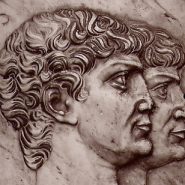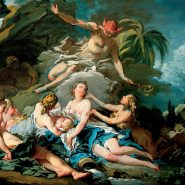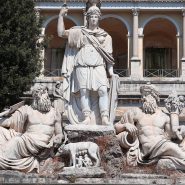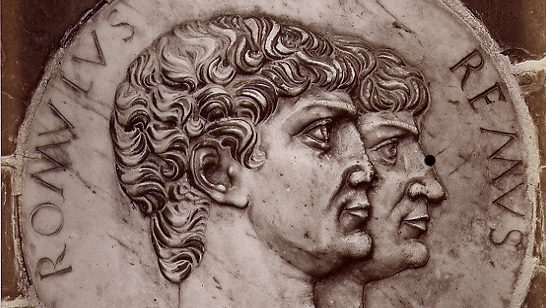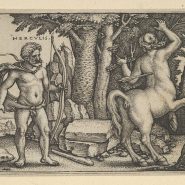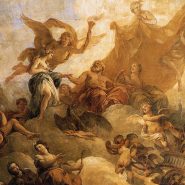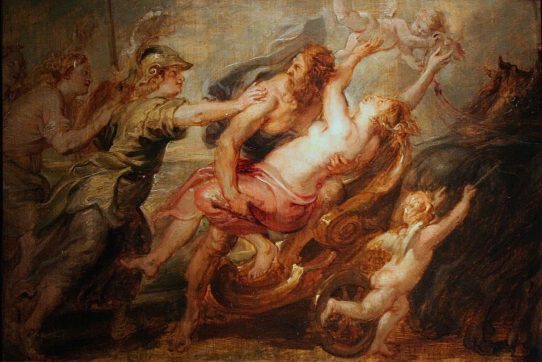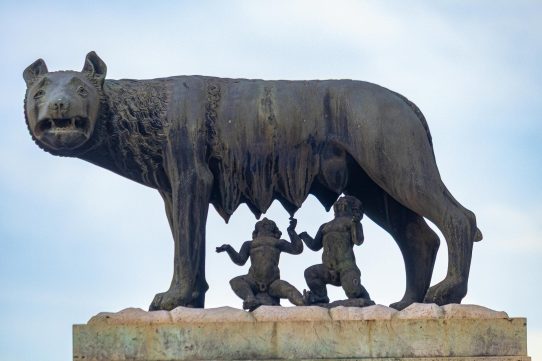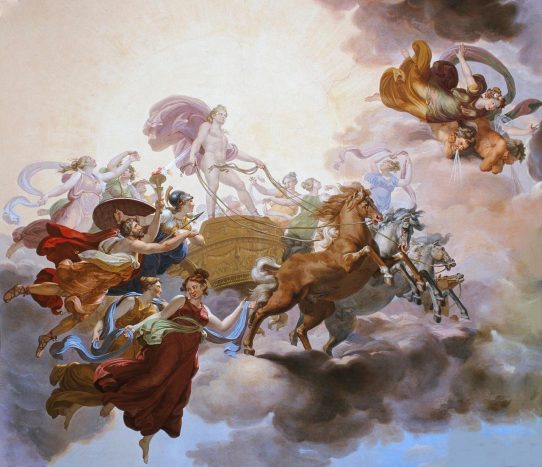Introduction
Every empire begins with a story, and for Rome, that story begins with Romulus — the warrior-founder, the lawgiver, and the first king whose name the Eternal City would bear. Half divine and half mortal, Romulus rose from exile and violence to establish a city that would one day rule the world. His tale is one of destiny, ambition, and divine favor, reflecting Rome’s own belief in its fated greatness.
Birth and Divine Origins
According to Roman tradition, Romulus and his twin brother Remus were the sons of Mars, god of war, and Rhea Silvia, a Vestal Virgin and descendant of Aeneas of Troy. Their birth was both miraculous and perilous. Rhea Silvia’s divine pregnancy defied her vows, angering her uncle Amulius, who had seized her father’s throne. Fearing the prophecy that her sons would one day overthrow him, Amulius ordered the infants to be drowned in the River Tiber.
But fate, guided by the gods, intervened. The basket carrying the twins drifted safely ashore near the Palatine Hill, where a she-wolf (lupa) discovered them. She nursed and protected the children until a shepherd named Faustulus found and raised them as his own. From this act of survival — nurtured by beast, man, and divinity — the legend of Rome’s founders began.
The Founding of Rome
As young men, Romulus and Remus learned of their royal heritage and led a revolt to restore their grandfather Numitor to the throne of Alba Longa. Once justice was done, the twins set out to build a new city of their own near the Tiber, on the very ground where they had been saved.
Yet destiny demanded rivalry. The brothers disagreed over where to found the city and who would rule it. To resolve the dispute, they turned to augury — the reading of omens through the flight of birds. Remus claimed to have seen six vultures first, but Romulus saw twelve later, interpreting it as a greater sign of divine favor. The dispute turned violent. In the ensuing quarrel, Romulus killed Remus, sealing the city’s fate in blood.
Standing over his fallen brother, Romulus declared that the city would bear his name — Roma — and that no one would cross its walls without consequence. Thus, Rome was born from both divine purpose and human passion, destined to reflect the dual nature of its founder.
The Reign of Romulus
As Rome’s first king, Romulus proved as capable a ruler as he was a warrior. He fortified the Palatine Hill, established a senate of one hundred men called the patres, and divided the population into tribes, laying the foundation for Rome’s civic order. Yet his greatest challenge came not from governance but from the need to populate his fledgling city.
Rome’s early citizens were mostly exiles, fugitives, and wanderers — a band of outcasts rather than families. To secure wives for his men, Romulus devised the Rape of the Sabine Women, inviting the neighboring Sabines to a festival and then seizing their daughters. Though brutal, the act was later reconciled through diplomacy and the women’s own mediation, uniting Romans and Sabines into one people.
This episode, harsh as it was, symbolized the Roman ideal of transformation through struggle — that from conflict could emerge strength and unity. Romulus ruled jointly for a time with the Sabine king Tatius, and together they built the institutions that would endure long after their deaths.
The Apotheosis of Romulus
Romulus’ reign lasted for thirty-seven years, during which Rome grew into a formidable power. His disappearance, however, was as mysterious as his birth. During a violent storm, as he addressed his army near the Palus Caprae, Romulus vanished from sight. Some said he was torn apart by jealous senators; others believed he was taken up into the heavens by his divine father, Mars.
In the days that followed, a nobleman named Proculus Julius claimed that Romulus had appeared to him in a vision, commanding him to tell the Romans that he had become a god and would henceforth be known as Quirinus, protector of the city. From that moment, Romulus was worshiped not just as a king but as a divine guardian — the mortal who became immortal through the greatness of his creation.
Symbolism and Legacy
Romulus embodied the Roman virtues of courage, leadership, and destiny. His story was not one of peace but of perseverance and willpower — qualities that defined Rome itself. The duality of his character — heroic yet violent, just yet ruthless — mirrored the contradictions of the empire that would bear his name.
The myth of Romulus also carried deep political and religious significance. His deification as Quirinus symbolized the Roman belief that great deeds could earn a mortal a place among the gods. In him, Romans saw not only their founder but the prototype of every conqueror and statesman who followed.
Throughout Roman history, emperors from Augustus to Marcus Aurelius invoked Romulus’ legacy to legitimize their rule, casting themselves as new founders of the city or restorers of its destiny. His story, carved into marble and memory, became inseparable from Rome’s own eternal narrative.
Conclusion
Romulus’ legend is the story of Rome itself: born from divine favor and human struggle, forged in conflict, and destined for greatness. His journey from exile to kingship, from mortal to god, captured the essence of Roman identity — that power, when guided by will and purpose, could shape the world.
As the first king of Rome and its eternal guardian, Romulus remains not merely a figure of myth but a symbol of the indomitable spirit that built an empire from the banks of the Tiber and carried its name to the ends of the earth.
